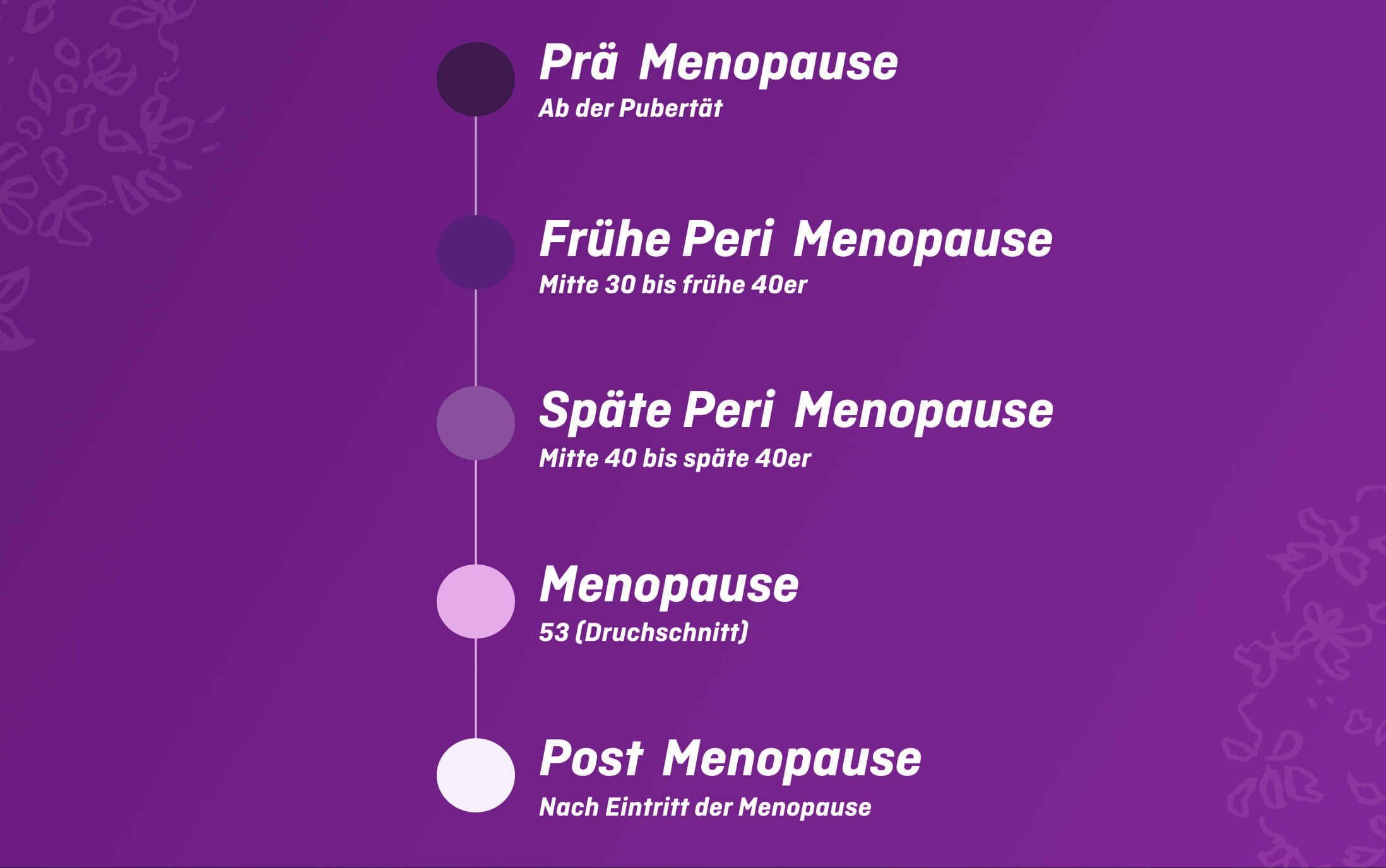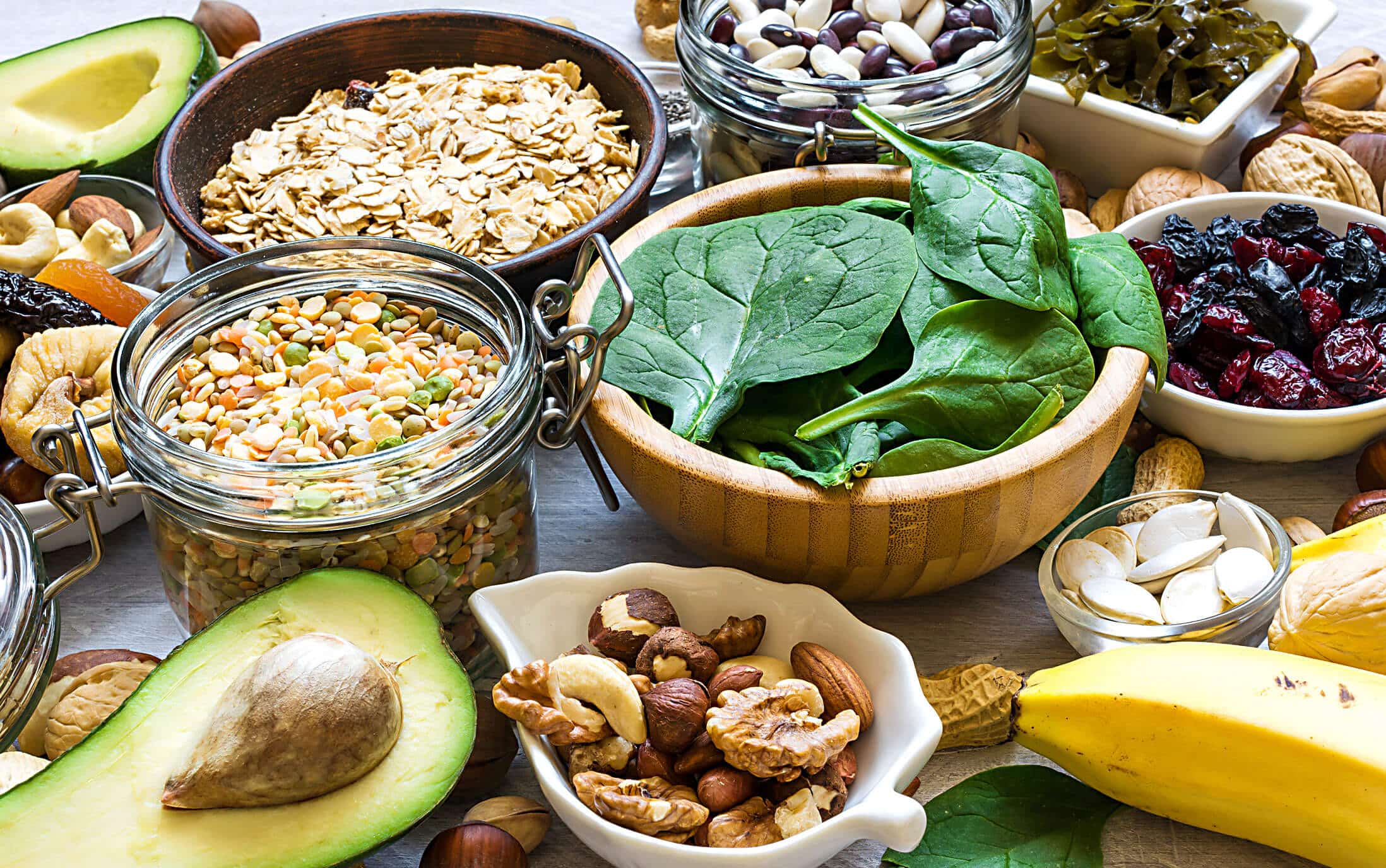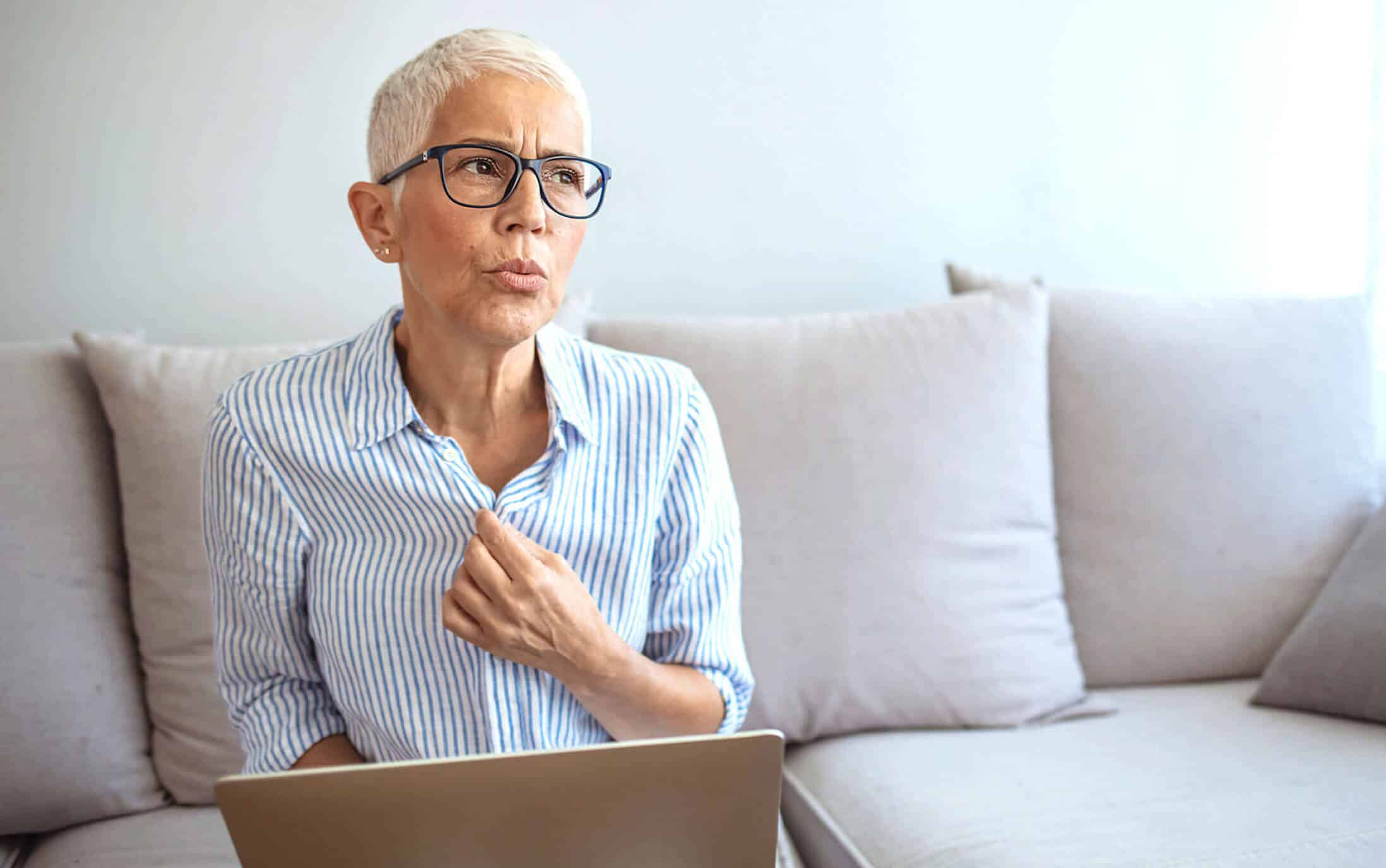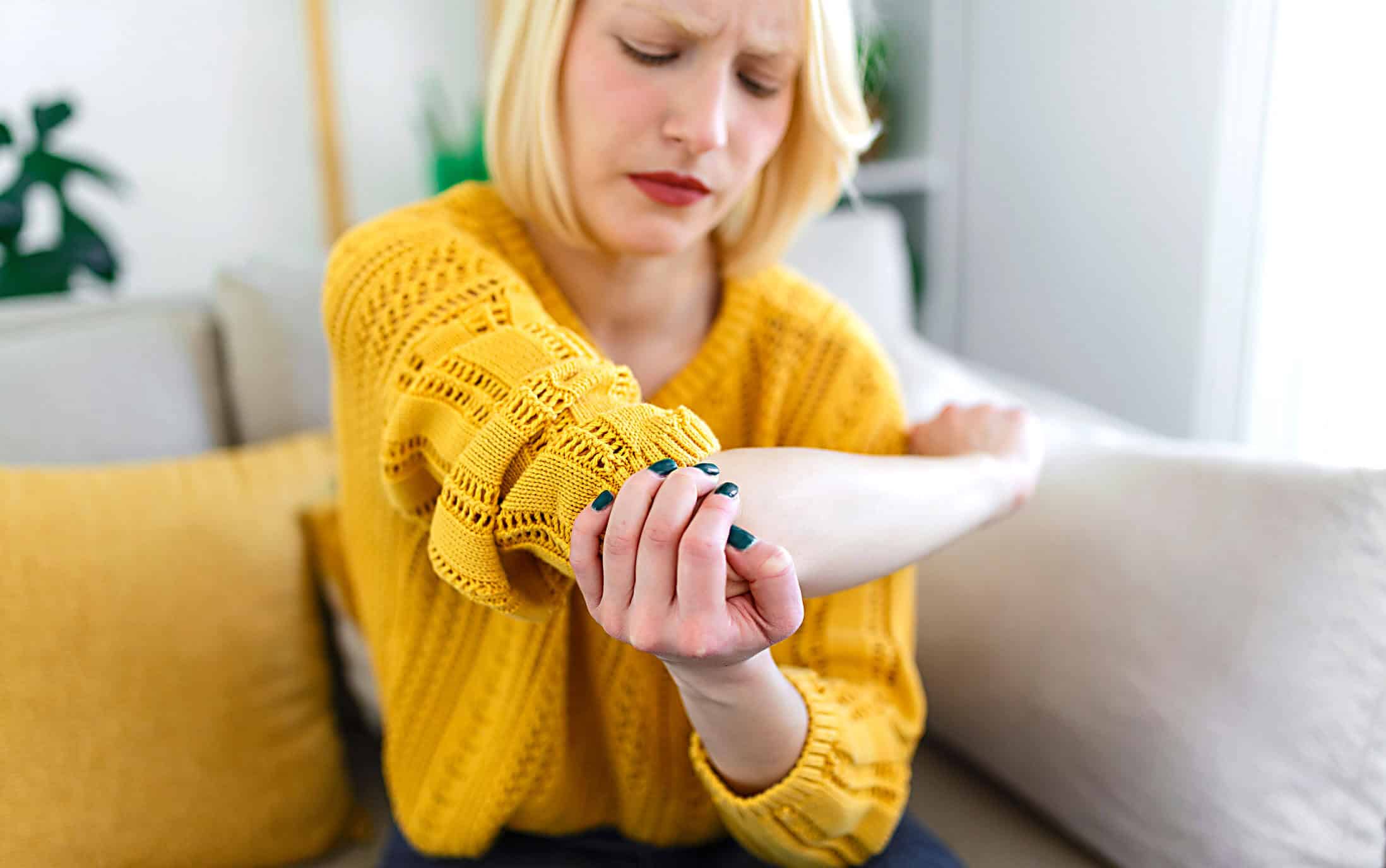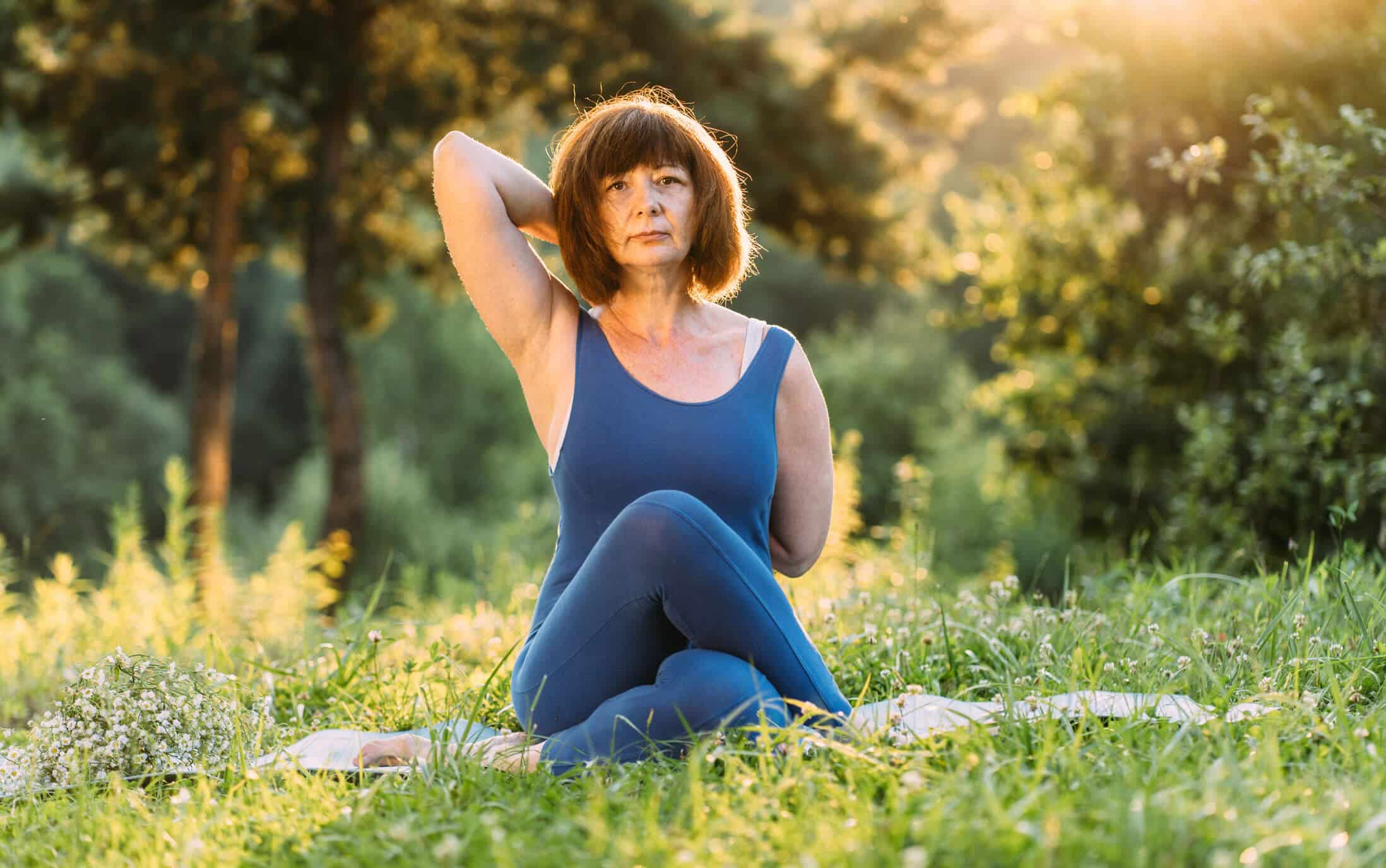What you should be aware of with vaginal gel
Almost half of all menopausal and post-menopausal women develop what is known as genitourinary syndrome of menopause along with its negative effects on quality of life and sex life.
The drop in oestrogen level prevents the interior and exterior walls of the vagina from being supplied optimally, causing them to rescind. A vulvovaginal atrophy (VVA) can arise, which usually goes hand in hand with vaginal dryness and can take the form of itching, burning and pain during intercourse. In addition, it can lead to disruptions in bladder function, such as bladder weakness, urinary incontinence or bladder infection.

Despite being so widespread, little information is available about the problem of vaginal dryness. Only few women seek medical advice, most likely out of embarrassment. According to recent surveys, not even half of all menopausal women have done something to treat their vaginal dryness. But a range of over-the-counter (i.e. hormone-free) and prescription (i.e. hormonal) remedies are available.
The issue is not about whether or not to use hormones in the treatment, but rather to actually get treated. A more recent clinical study found that every form of treatment – regardless of whether hormonal or not – relieves the vaginal complaints of vaginal dryness and the treatment should mainly align with the patient’s individual preferences.1
What you need to know about vaginal moisturisers
Vaginal moisturisers are an effective treatment option for vaginal dryness, especially for women who would prefer to stay away from the use of hormonal preparations and are looking for a natural, hormone-free remedy. Vaginal moisturisers reduce friction with thin and dry vaginal tissue, preventing unpleasant burning and itching sensations, as well as infections. Hormone-free vaginal gels are particularly recommended for a typical case of vaginal dryness.
Meanwhile, prescription hormonal vaginal medications are mainly used to tackle more severe forms of vaginal atrophy.
Vaginal moisturisers are not to be confused with lubricants, which are mainly intended for problems with intercourse due to vaginal dryness and are aimed at helping relieve discomfort and pain. Lubricants are therefore only used if needed.
Vaginal gel moisturisers rehydrate dry mucosal tissue and are absorbed by the skin. They stick to the vaginal mucosa and imitate natural vaginal secretion. Vaginal gel moisturisers preserve the moisture and acidic balance of the vagina.
Vaginal gel moisturisers are intended for the non-hormonal relief of vaginal dryness. Depending on the severity of the vaginal dryness, they are applied regularly, either daily or every 2-3 days.
Vaginal gel moisturisers are ideal for women who are not necessarily sexually active but experience discomfort in the everyday and are also ideal for women having painful symptoms during sexual activity.
As vaginal gel moisturisers are used to hydrate the mucosa, they are usually water-based. They contain plant-based or synthetic gelling agents to bind the water to the mucosa. In addition, they can contain a wide range of other excipients to provide the appropriate viscosity, pH buffering and preservation.
What should you be aware of when choosing a suitable vaginal gel?
Not all vaginal gels are the same. The products you can buy in the shops have major differences that you should be aware of.
Why are natural vaginal gels recommended? In general, a product as physiologically similar to the natural vaginal secretion as possible is always recommended, as the use of vaginal medications can quickly lead to irritation to the vulva or inflammatory reactions in the mucosa.2
For this, a product aimed at vaginal application should be as natural as possible and be free from any potentially irritating additives and excipients, or those harmful to tissue. To ensure good compatibility, the osmolality and pH value should be optimally tailored to vaginal requirements.
Why is iso-osmolality important? The North American Menopause Society (NAMS) recommends only using water-based vaginal gels or lubricants which are iso-osmolal, as the barrier function of the vaginal mucosa can otherwise be impaired.3
Simply put, the osmolality determines the distribution of water between different systems. When it comes to vaginal gels, this means: A hyper-osmolar gel attracts water and can lead to mucosal irritations such as burning, a hot sensation and itching in the intimate area. The WHO defines 380 mOsm/kg as an upper limit for the osmolality of vaginal medications in order to minimise the risk of tissue damage.4
Many manufacturers do not specify this value and preparations available to buy far exceed this value. With menoelle® vaginal gel, you can be on the safe side. menoelle® vaginal gel has an osmolality of around 260 mOsm/kg and is thus iso-osmolal for vaginal tissue.
Why is compatibility with the pH value of the vaginal balance necessary?
The pH value is a measure for how acidic or basic a balance is. With a pH value of 3.8–4.5, the vaginal balance is relatively acidic, providing vaginal acid protection against vaginal infections.
the pH value of the vagina. If the pH value is too high or too low, the balance of natural vaginal flora can become disrupted, which can result in irritation or infection. Therefore when buying a vaginal gel, you should pay attention to products which have a compatible pH value, such as menoelle® vaginal gel.
pay attention to these 3 points when buying a vaginal gel:
- It should consist of natural components and should contain no or only few additives and excipients (such as parabens).
- It should comply with the recommended limits of osmolality.
- It should have a pH value compatible with the vaginal balance.
List of sources
(1) Mitchell CM, Reed SD, Diem S, et al. Efficacy of Vaginal Estradiol or Vaginal Moisturizer vs Placebo for Treating Postmenopausal Vulvovaginal Symptoms: A Randomized Clinical Trial. JAMA Intern Med.2018;178(5):681–690.
(2) Behandlung der vulvovaginalen Atrophie/des urogenitalen Menopausensyndroms: Wie wichtig ist die Zusammensetzung von vaginalen Gleitmitteln und Feuchtigkeitscremes?“, erschienen in CLIMACTERIC, 2016 BD. 19, NR. 2, 151–161
(3) The 2020 genitourinary syndrome of menopause position statement of The North American Menopause Society. Menopause. 2020 Sep; 27(9):976-992
(4) Use and procurement of additional lubricants for male and female condoms: Advisory note, WHO/UNFPA/FHI360, 2012
menoelle® vaginal gel
Quickly relieves vaginal dryness and alleviates irritation, itching and burning.
- menoelle® vaginal gel is a certified organic, water-based gel moisturiser and provides natural, lasting moisture to dry vaginal mucosa.
- menoelle® vaginal gel results in effective, fast and lasting relief and ensures well-being in the intimate area.
- menoelle® vaginal gel uses a patented technology and contains a natural gel adhesive made of plant-based polymers, which sticks to the vaginal walls and provides an up to three day moisture depot.
- menoelle® vaginal gel was developed for sensitive vaginal flora, is iso-osmolal, has a pH value compatible with the vaginal balance and is free from hormones as well as any chemical ingredients that could be harmful to the skin.
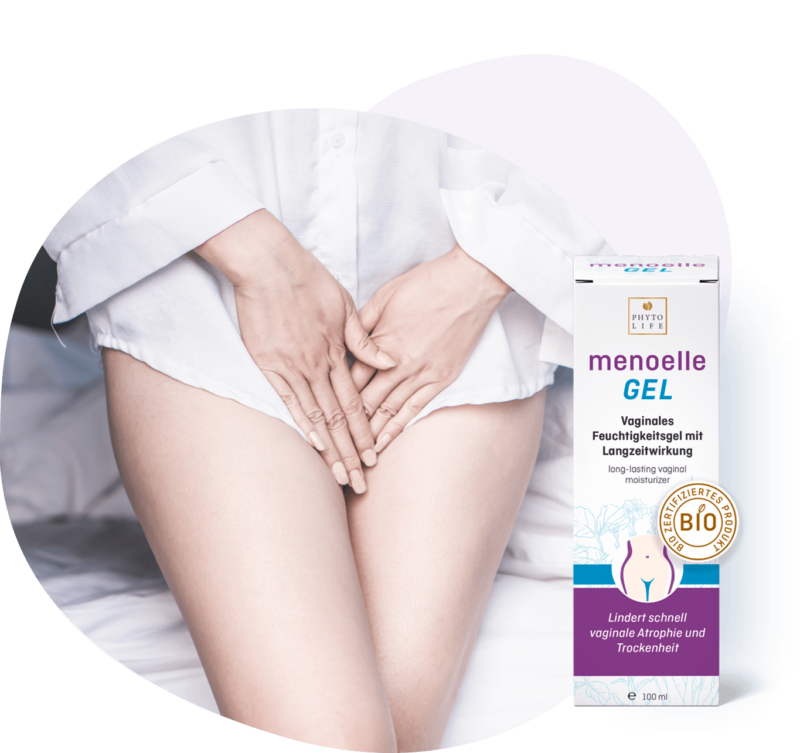
Product details
Product details
- A gentle, clear and natural bio-adhesive gel
- Discreet, non-sticky, colourless, fragrance and taste free.
- Matches the consistency and feeling of the natural lubrication
- The correct pH for restoring and maintaining the protective acidity level in the vagina, fosters a healthy vaginal flora
- Free from hormones
- Free from any substances known to irritate mucous membranes, and free from ingredients such as glycerine, oil and petroleum-based products, parabens (hormone mimics) that may alter or damage the healthy vaginal flora
- Gentle and natural, suitable even in cases of extreme sensitivity
- Guaranteed pure with certified organic status
- Safe for use with condoms made of latex and polyisoprene
- Proven by health experts and by women to provide soothing,
- safe and pleasant relief from the uncomfortable symptoms caused by vaginal dryness during menopause
- A hormone-free, natural alternative to synthetic and chemical vaginal rehydration gels
Ingredients
Water, linseed extract*, aloe vera*, locust bean gum*, guar gum*, sodium chloride, xanthan gum, potassium sorbate, citric acid, phenoxyethanol.
* Certified organic ingredients. 95% organic. International patent protection.
Application
Please note: menoelle® GEL is neither a spermicide nor a contraceptive. Detailed notes on its application can be found in the menoelle® GEL directions for use.
menoelle® GEL is a gentle, clear gel that can be simply applied and distributed with your fingers. You can therefore decide yourself how much and where you wish to apply it.
Application of 5 ml every two to three days is usually enough to keep the vaginal mucosa hydrated and comfortable. In cases of extreme dryness, the gel can initially be used more frequently (1x every one to two days), until there is an improvement.
When used regularly, menoelle® GEL can restore the vagina’s natural acid resistance.

